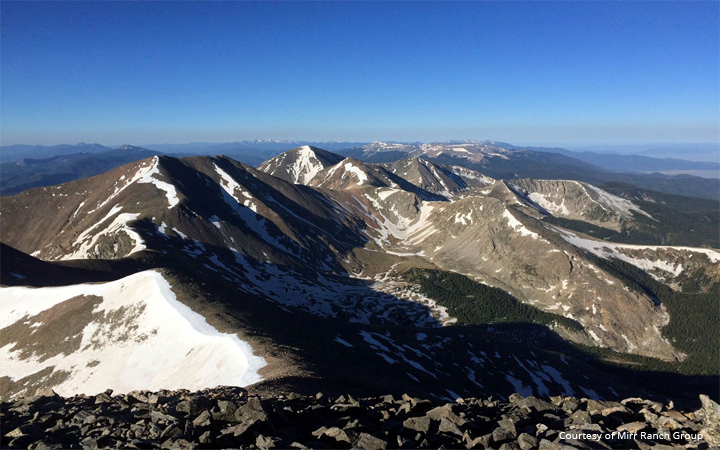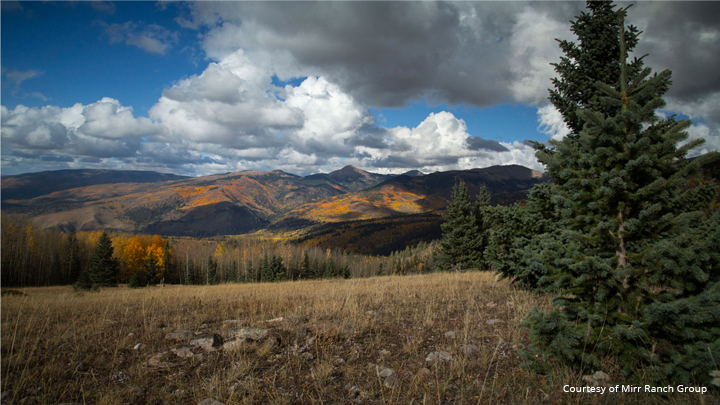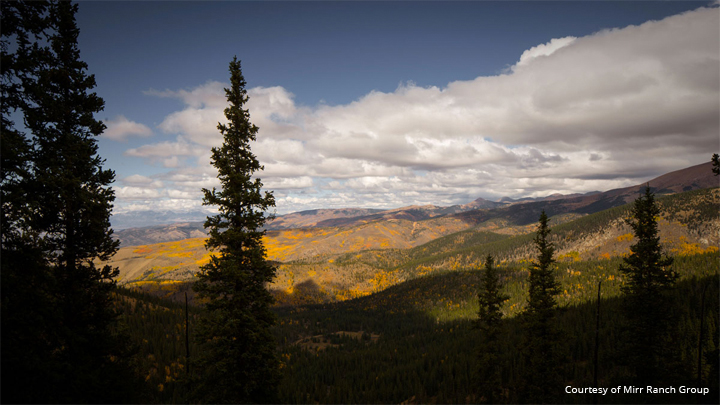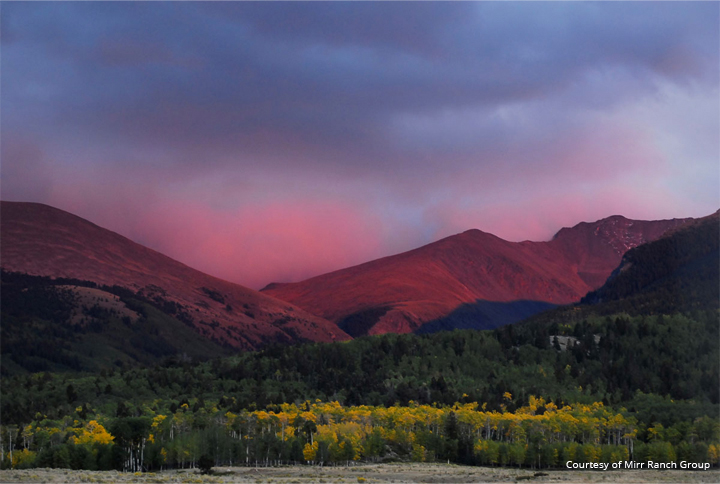Alfie Meyerson, a partner at Jackson Walker in Houston, does a lot of real estate deals – from retail to office to industrial. When it comes to ranch deals, he does one maybe every other year.

This was his year, and then some.
Last month, Meyerson helped a Texan buy the Cielo Vista Ranch in Colorado. He wouldn’t reveal the name of the buyer, who he has worked with in the past on commercial real estate transactions. He also wouldn’t reveal the sale amount. But the property was listed at $105 million, which, if it approximated that sum, would be the biggest ranch sale in the U.S. so far this year.
The property, which was previously known as the Taylor Ranch, covers 83,000 acres and features the 14,053-foot Culebra Peak, the highest privately-owned one in the world (it means “snake” in Spanish). The ranch is also home to 17 other peaks, a range of foothills and alpine, more than 100 miles of creeks and an array of wildlife, including elk and bighorn sheep and several species of trout.
“It’s like buying your own national park,” Meyerson said.
A third of the land is dedicated as a conservation easement, which the buyer plans to preserve. Meyerson said the buyer — who is an outdoorsman — merely wants the ranch for his own private use.


How did the deal get started?
Meyerson said the buyer emailed him the day after New Year’s saying he had visited with the broker and was interested in buying the property. “By the time he contacted me, he was ready to enter into a letter of intent,” he said.
The lawyer ended up working on the transaction for six months, closing it in mid-August. “There’s a lot of due diligence to do on 83,000 acres along with a lot of title issues,” he said.
Indeed, the ranch has changed names and hands several times since the 1880s, when it was part of a 1 million acre land grant from Mexico and Spain to a French Canadian trapper, who deeded it to Mexican and Spanish settlers for logging, hunting and grazing livestock (they called it “La Sierra,” or “The Mountain Range”). Those rights later led the property to be the subject of litigation for 30 years.
Jack Taylor, a North Carolina lumber baron, bought the ranch from heirs of Colorado’s first territorial governor William Gilpin in 1960. Four years later, he obtained a federal court decree taking away the land grant rights and barring the settlers’ descendants from entering it, leading some to move away and others to file suit. After exchanging insults and even gunfire — he’s said to have pistol whipped several descendants and been shot in the foot by one — Taylor died in 1988.
His estate sold the ranch — with the issues unresolved — to ex-Enron executive Lou Pai for $20 million (neighbors started calling it “Mount Pai”). In 2002, the Colorado Supreme Court restored wood gathering and grazing rights to heirs of the original settlers. So he appealed the ruling to the U.S. Supreme Court, which declined to hear his case the following year.
Pai ended up selling the ranch in 2004 to Texas ranchers Bobby and Dottie Hill and other investors for $60 million, three times his money. They renamed it Cielo Vista, which means “Heavenly View” in Spanish, and opened it up to the public, including charging $100 to hike Culebra in the summertime.
The ranch sale also had lots of other legal considerations, including multi-tier financing, water rights, conservation, corporate formation (“to protect the client against litigation,” Meyerson said) and tax issues.
The deal was also structured as a reverse like-kind exchange, meaning the buyer bought the property and then will sell other property to help pay for it — and thus avoid paying taxes on any sale gains, with the tax basis transferring from the old property to the new one.
Helping Meyerson on all those considerations were environmental partner Pete Wahl in Dallas, corporate partner David Deaton in Houston, tax partner Nate Smithson in Dallas and real estate associate Carey Hain in Houston.
Conservation Brokerage’s Dave Palmerlee in Wyoming also advised the buyer. Murr Ranch Group’s Jeff Hubbard and Pat Lancaster in Denver assisted the seller. The seller also turned to Wendy Harring of Spencer Fane in Denver as its legal adviser.


Jackson Walker has made a name for itself in the ranch business.
Last year partners Wayne Malecha in Dallas and Albon Head Jr. in Fort Worth represented a court-appointed receiver in the sale of W.T. Waggoner Ranch, the largest ranch under one fence in the U.S. (its buyer was Los Angeles Rams owner and billionaire Stan Kroenke). The price wasn’t disclosed for the North Texas property, but it had been listed at $725 million.
Meyerson said ranch deals are different than sales of raw land because a lot of them are operating businesses with leases. He said he’s currently working on another ranch sale in south Texas that’s been in the same family since 1908. That deal — which is under contract to an undisclosed buyer in the oil and gas business who has another ranch nearby — amounts to around $20 million and should close at the end of October.
Meyerson, a graduate of University of Texas’ law school, joined Jackson Walker in 2015 from Thompson Knight, where he had practiced for 30 years. He said he made the switch because of the firm’s dominant real estate practice.
“My clients do real estate lending, and this firm is built for that,” he said. “It’s a better fit for what I did.”
Its experience with big ranching deals didn’t hurt.
